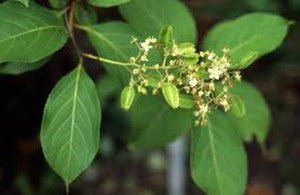Cheap Arthritis Herb Proven More Effective Than Medicine
 |
| Cheap Arthritis Herb Proven More Effective Than Medicine |
Arthritis is considered incurable from the Western traditional pharmaceutical point of view. At best, medications can reduce inflammation and pain for a while. And most often it comes at the cost of serious side effects.
But now, a team of researchers from Peking Union Medical College Hospital have proven that an old, Chinese herb (widely available in health food stores) is more effective than modern medicine.
In fact, majority of those who took the herb experienced at least 50 percent reduction in inflammation.
A research conducted by a team from Peking Union Medical College Hospital in China have found promising results with a traditional Chinese herb called Tripterygium wilfordii. The herb is more commonly referred to as ‘thunder god vine’ and has been used for different medicinal uses for many centuries.
In a trial, 207 patients were assigned to one of three groups; the first group received 12.5 mg of prescription drug, methotrexate once a week, the second group received 20 mg of the herb extract and the third group received a combination of both. The patients were tracked for a period of 24 weeks. They were then assessed to check if at least 50 percent reduction in pain and swelling of joints was achieved.
55.1 percent of the patients who took the herb extract and 76.8 percent of those who took a combination of drug and the herb extract showed more than 50% improvement in inflammation. Compare this to only 46.4 percent who got relief from taking only the drug.
The side effects related to the herb extract was also found to be minimal. This inexpensive Chinese herb seems like a potential candidate for treating rheumatoid arthritis safely. Many doctors in China actually recommend this herb extract, available as capsules, for patients older than 50 years.
Apart from its effect on arthritis, the herb is also known to cure pancreatic cancer and other autoimmune diseases. It is, however, believed to lower fertility in men.



Comments